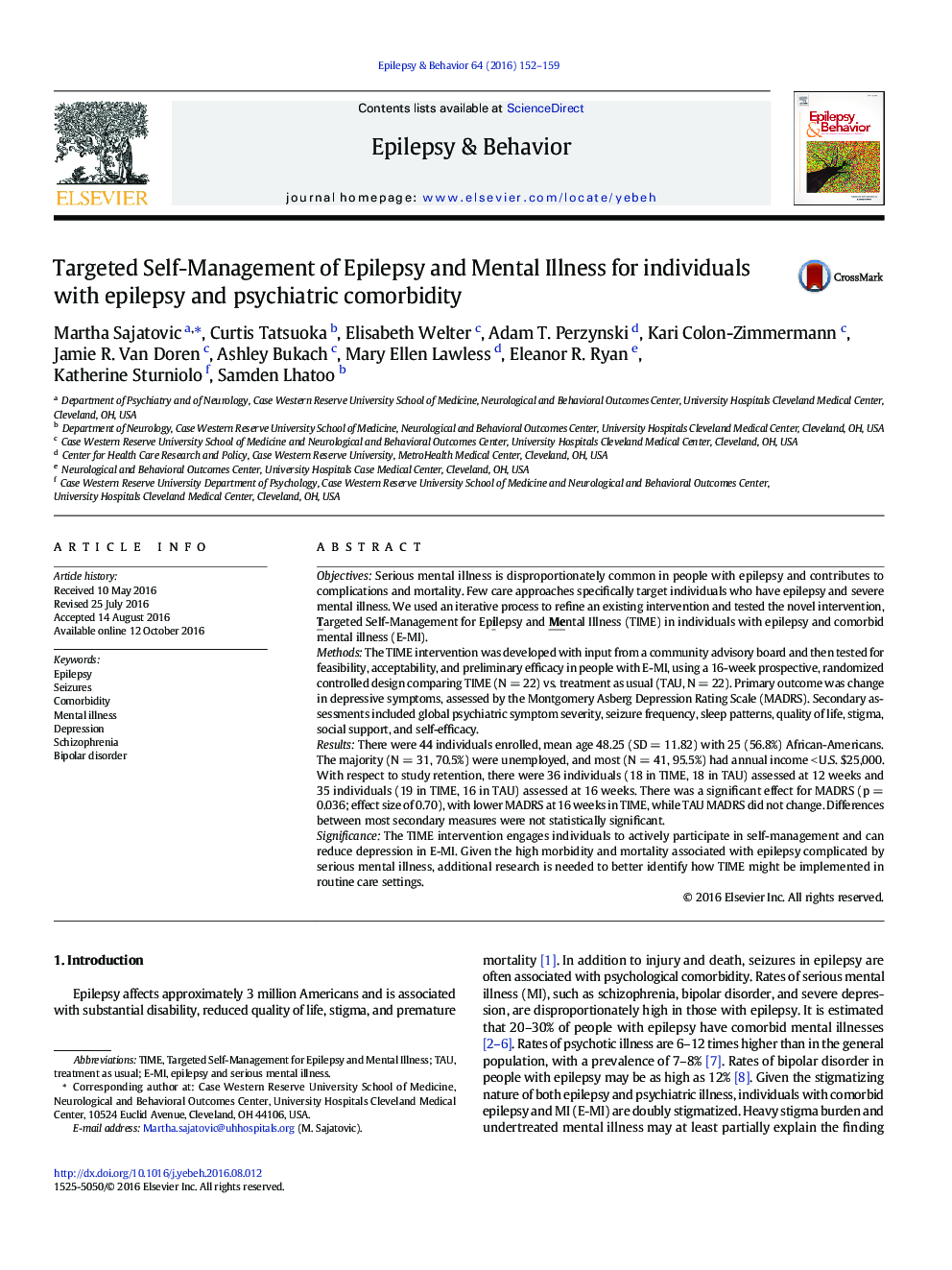| کد مقاله | کد نشریه | سال انتشار | مقاله انگلیسی | نسخه تمام متن |
|---|---|---|---|---|
| 5628097 | 1406365 | 2016 | 8 صفحه PDF | دانلود رایگان |
- Serious mental illness is disproportionately common in people with epilepsy and contributes to complications and mortality.
- Few care approaches specifically target individuals with comorbid epilepsy and severe mental illness.
- This randomized controlled trial tested Targeted Self-Management for Epilepsy and Mental Illness (TIME) vs treatment as usual.
- The TIME approach engages individuals in self-management and can reduce depression in people with epilepsy and mental illness.
ObjectivesSerious mental illness is disproportionately common in people with epilepsy and contributes to complications and mortality. Few care approaches specifically target individuals who have epilepsy and severe mental illness. We used an iterative process to refine an existing intervention and tested the novel intervention, Targeted Self-Management for Epilepsy and Mental Illness (TIME) in individuals with epilepsy and comorbid mental illness (E-MI).MethodsThe TIME intervention was developed with input from a community advisory board and then tested for feasibility, acceptability, and preliminary efficacy in people with E-MI, using a 16-week prospective, randomized controlled design comparing TIME (N = 22) vs. treatment as usual (TAU, N = 22). Primary outcome was change in depressive symptoms, assessed by the Montgomery Asberg Depression Rating Scale (MADRS). Secondary assessments included global psychiatric symptom severity, seizure frequency, sleep patterns, quality of life, stigma, social support, and self-efficacy.ResultsThere were 44 individuals enrolled, mean age 48.25 (SD = 11.82) with 25 (56.8%) African-Americans. The majority (N = 31, 70.5%) were unemployed, and most (N = 41, 95.5%) had annual income < U.S. $25,000. With respect to study retention, there were 36 individuals (18 in TIME, 18 in TAU) assessed at 12 weeks and 35 individuals (19 in TIME, 16 in TAU) assessed at 16 weeks. There was a significant effect for MADRS (p = 0.036; effect size of 0.70), with lower MADRS at 16 weeks in TIME, while TAU MADRS did not change. Differences between most secondary measures were not statistically significant.SignificanceThe TIME intervention engages individuals to actively participate in self-management and can reduce depression in E-MI. Given the high morbidity and mortality associated with epilepsy complicated by serious mental illness, additional research is needed to better identify how TIME might be implemented in routine care settings.
Journal: Epilepsy & Behavior - Volume 64, Part A, November 2016, Pages 152-159
